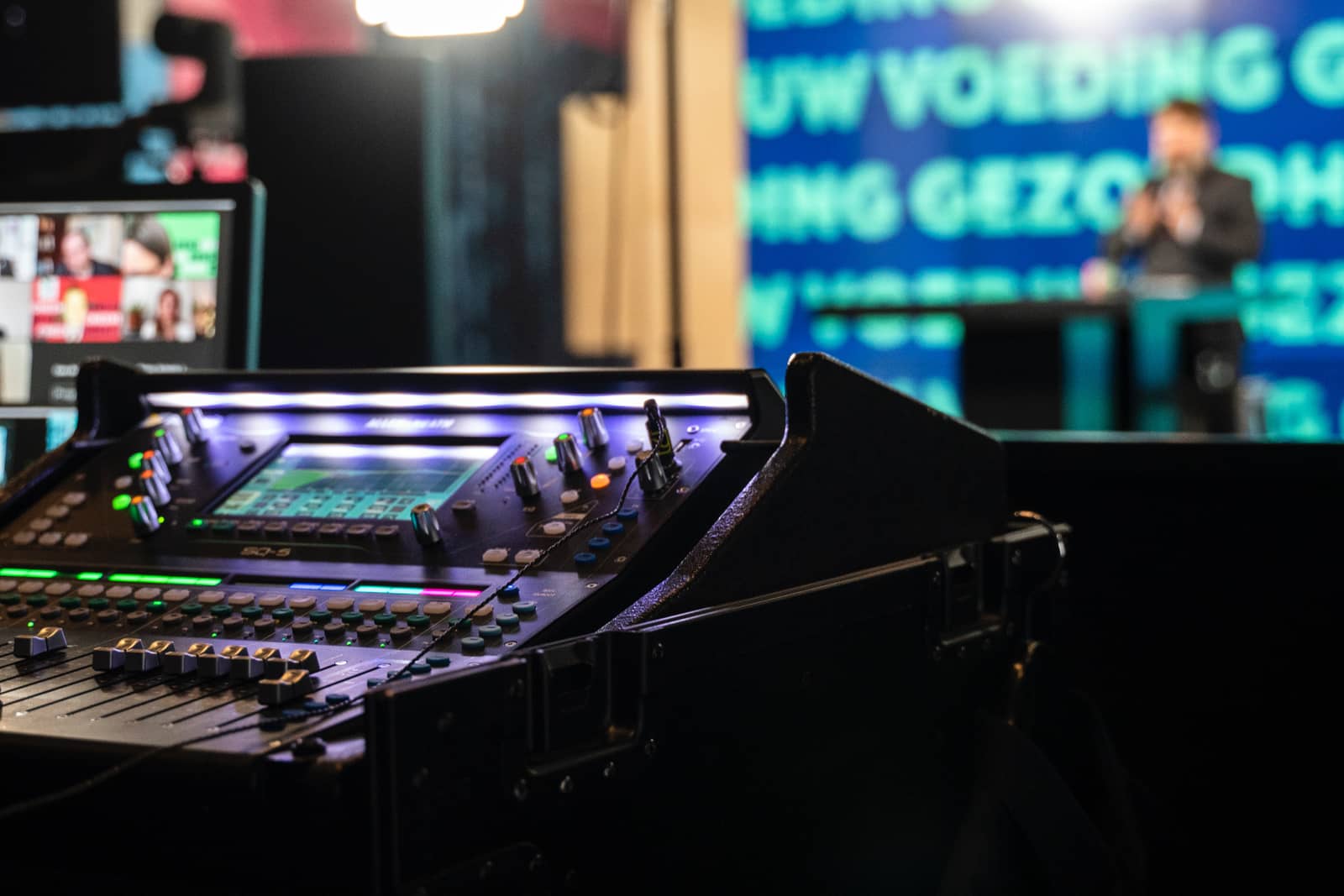
As an avid live streamer, I understand the importance of finding the best laptop for live streaming that can support the demands of broadcasting high-quality content. Live streaming has become increasingly popular as an engaging and interactive way to connect with audiences across a variety of platforms like Twitch, YouTube, and Facebook Gaming. While desktop computers have been the traditional choice for streamers, there's a growing need for portable and powerful laptops that can handle the rigors of live streaming, whether you're a gaming enthusiast or a professional content creator.
Selecting the best laptop for live streaming requires careful consideration of various factors such as processing power, graphics capabilities, and display quality, as well as ensuring compatibility with essential streaming software like OBS or Streamlabs OBS. I've spent countless hours reviewing an extensive laptop spreadsheet, comparing specs and reviews from both professionals and users, in order to pinpoint the top laptops that cater to the unique requirements of live streaming within different price ranges.
In addition to the core specifications, it's important to pay attention to the little details that can make a significant difference in your streaming experience. Features such as a high-quality built-in webcam and microphone, a reliable and fast Wi-Fi connection, and an efficient cooling system are all crucial elements to consider when choosing the best laptop for live streaming. Moreover, as a live streamer, you'll also need to ensure that your laptop has a sufficient number of USB ports for connecting external devices like capture cards, cameras, and audio interfaces. By keeping these requirements in mind, you'll be well-equipped to make an informed decision when selecting the perfect live streaming laptop that caters to your specific needs and preferences.
Stream without interruption: The best processors for live streaming laptops

Live streaming requires a powerful processor to handle high-quality video output. When choosing a laptop processor for live streaming, there are a few factors to consider. Currently, there are several options available in the market, including Apple's M-series, AMD's Ryzen, and Intel's Core processors.
If you're looking for a Windows laptop, AMD Ryzen CPUs offer excellent battery life and performance, making them a great choice for live streaming. Intel's 13th-generation Core processors are the latest, but their 12th-generation CPUs provide good value, especially if you don't need the latest cutting-edge performance.
When choosing a processor, it's important to consider your specific needs. If you're looking for a gaming laptop, you'll want an H-series processor, such as an AMD Ryzen 7 or an Intel i7/i9. These processors offer better performance but come with higher power consumption and heat output, resulting in a shorter battery life than with a U-series chip.
It's worth noting that the CPU isn't the only component that impacts live streaming performance. A dedicated GPU, plenty of RAM, and fast storage are also important. However, if you're on a budget, focus on getting the best value possible within your budget.
Here are some recommendations for each price bracket:
| Price Bracket | Processor Model |
|---|---|
| Minimum | Intel Core i3-1115G4 |
| Recommended | Intel Core i5-1135G7 |
| High-end | Intel Core i7-11370H |
It's important to note that these are just general recommendations, and the best processor for you will depend on your specific needs and budget. To compare different processors, you can use benchmarks like Cinebench R23, but keep in mind that they may not stress all parts of the processor equally.
In summary, choosing the right processor for live streaming requires consideration of your specific needs and budget. While the processor is the most important component for high-quality video output, it's not the only factor to consider.
Stream Like a Pro: The Power of Graphics Cards
When it comes to live streaming on a laptop, having the right graphics card is crucial. The market has seen significant changes in recent years, with Nvidia still leading the way with its graphics cards. Although the first batch of RTX 40 series cards is now available, the RTX 30 series still dominates the current notebook GPU market.
While dedicated GPUs are essential for gaming, they may not be necessary for live streaming. Integrated graphics are more than enough for most people. However, if you're looking to game while streaming, a discrete graphics card becomes necessary.
One way to measure a graphics card's performance is through benchmark tests like 3DMark, PassMark G3D, and Cinebench R23. These tests may not always reflect real-world gaming performance, but they provide a good idea of a graphics card's capabilities.
To identify a laptop with a high-end graphics chip, look for one with an Nvidia Advanced Silicon chip (ASIC). These chips offer better power efficiency than their predecessors, resulting in longer battery life.
Here are our recommended GPUs for various budgets:
| Budget | Recommended GPU |
|---|---|
| Minimum | GeForce GTX 1650 |
| Recommended | GeForce RTX 3050 |
| High-end | GeForce RTX 2060 |
In summary, when it comes to live streaming on a laptop, a dedicated GPU may not always be necessary. Still, if you're looking to game while streaming, having the right graphics card becomes crucial. Use benchmark tests to determine a graphics card's performance, and look for a laptop with an Nvidia Advanced Silicon chip if you're looking for longer battery life.
Stream like a Pro: How much RAM do you need?
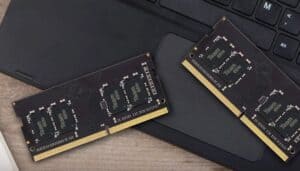
When it comes to live streaming, RAM is one of the most crucial components in a laptop. In the last few years, most mid-range laptops come with 16 GB of RAM, while high-end laptops offer 32 GB or more. Latest-gen Intel and AMD CPUs support DDR4 and DDR5, but DDR5 is still expensive and needs time to mature as a technology.
If you're planning on streaming, you'll need at least 16 GB of RAM, while 32 GB would be ideal if you want to play games while streaming. While DDR5 is a newer technology, the difference between DDR4 and DDR5 is negligible for most users. However, if you're planning on upgrading your laptop's RAM in the future, make sure it supports at least DDR5 and preferably even higher (DDR6).
Aside from RAM, other specs that matter for live streaming are a fast processor, dedicated graphics card, and high-quality webcam. When it comes to RAM benchmarks, they measure the speed and efficiency of the RAM in your laptop. Higher benchmark scores indicate better performance, but keep in mind that benchmark scores aren't always indicative of real-world performance.
If you're shopping for a live streaming laptop, here's a table of average laptop prices depending on RAM amount and price range:
| RAM | Low-End Price Range | Mid-Range Price Range | High-End Price Range |
|---|---|---|---|
| 8 GB | $300-$600 | $600-$1000 | $1000+ |
| 16 GB | $500-$800 | $800-$1500 | $1500+ |
| 32 GB | $1000-$1500 | $1500-$2500 | $2500+ |
In summary, when it comes to choosing the right laptop RAM for live streaming, we recommend a minimum of 8 GB, a recommended 16 GB, and high-end 32 GB. Remember to also consider other specs such as a fast processor and dedicated graphics card, and keep in mind that benchmark scores aren't always indicative of real-world performance.
Streaming made easy: Answers to your burning questions
Q: What are the best laptops for live streaming?
There are several laptops on the market that are great for live streaming. Some of our top picks include the ASUS Zenbook, Lenovo Legion 5 Pro, GIGABYTE AORUS 15 XE4, and ASUS ROG Strix Scar. Each of these laptops has excellent specs for live streaming and are well-built for handling the task.
What specs do I need in a laptop for live streaming?
When looking for a laptop for live streaming, there are a few key specs you should pay attention to. You'll need a processor with at least an i3-1115G4, *8 GB of RAM, and a graphics card with at least a GeForce GTX 1650. An SSD is also recommended for fast load times and a smooth streaming experience.
Can you live stream with a laptop?
Yes, you can definitely live stream with a laptop. In fact, laptops are a popular choice for live streaming due to their portability and convenience.
How much RAM do I need for live streaming on a laptop?
For live streaming on a laptop, you'll want at least 8 GB of RAM. However, if you're looking for a smoother streaming experience, we recommend going for 16 GB or even 32 GB of RAM.
What graphics card do I need for live streaming on a laptop?
To ensure a good streaming experience on a laptop, we recommend a laptop with at least a GeForce GTX 1650. For more demanding streaming scenarios, upgrading to a laptop with a GeForce RTX 3050 or even a GeForce RTX 2060 is recommended.
Do I need an SSD for live streaming on a laptop?
While an SSD is not required for live streaming on a laptop, it is definitely recommended. An SSD will provide faster load times and a smoother overall experience when streaming.
Can you use a laptop camera for live streaming?
Yes, you can use a laptop camera for live streaming. However, if you want higher-quality video, we recommend investing in a dedicated webcam.
What is the best laptop for live streaming on Twitch?
There are several great laptops for live streaming on Twitch. Some of our top picks include the ASUS Zenbook, Lenovo Legion 5 Pro, GIGABYTE AORUS 15 XE4, and ASUS ROG Strix Scar.
Can I live stream on a budget laptop?
Yes, you can definitely live stream on a budget laptop. While you may need to sacrifice some performance, there are plenty of budget laptops on the market that can handle live streaming.
What is the minimum internet speed for live streaming on a laptop?
The recommended minimum internet speed for live streaming on a laptop is 3 Mbps upload speed. However, for a smoother experience, we recommend at least 5 Mbps upload speed.
4 Best Laptops for live streaming
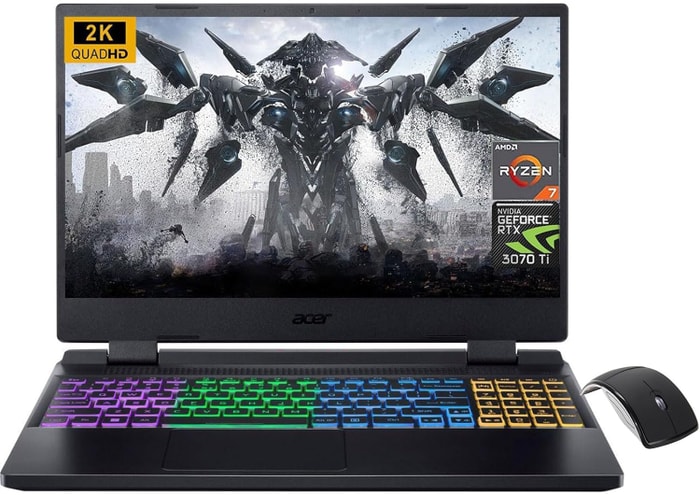 $680
$6801.acer Nitro 5
live streaming laptop- Superb processor (Ryzen 7 6800H)
- Solid graphics card (RTX 3070 Ti)
- Terrific display (15.6)
- Excellent memory amount (32GB)
- No IPS Panel (subpar viewing angles)
Alternatives
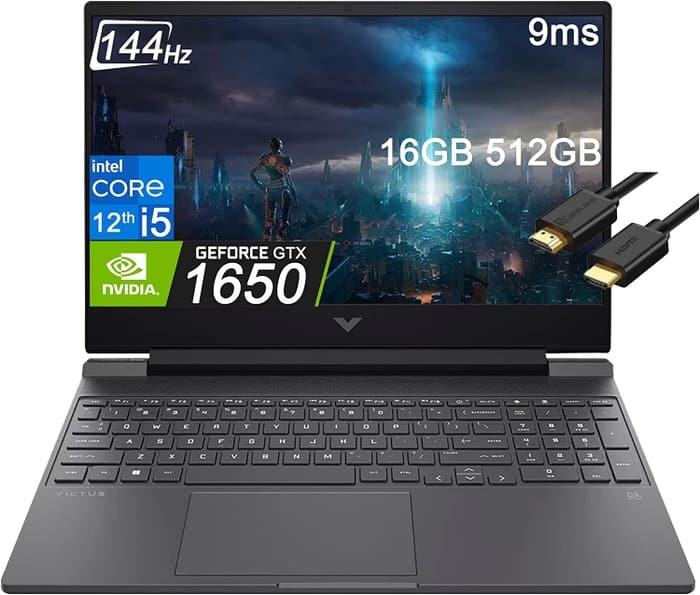
HP Victus 15t
- Solid gaming performance
- Affordable price
- Bad battery life
- Rather plain design

2.ASUS TUF Dash F15
ASUS TUF Dash F15: A powerful and affordable option for live streaming.- Lightweight and well-built
- Good input and output options
- Choice between FHD 300Hz and QHD screens
- More powerful than the previous generation
- Some quirks affecting everyday ergonomics
- Ports mostly located on the left edge
- Be cautious about the FHD 144Hz panel option
Summary
The ASUS TUF Dash F15 is an affordable and powerful laptop that is well-suited for live streaming. It offers a lightweight and well-built design, good input and output options, and a choice between a FHD 300Hz or QHD screen. However, users should be cautious about opting for the FHD 144Hz panel.
Reviews
Alternatives

Lenovo Legion 5i Pro 16
- Stylish, sleek form factor
- Gorgeous display
- Webcam quality is poor
- No biometrics
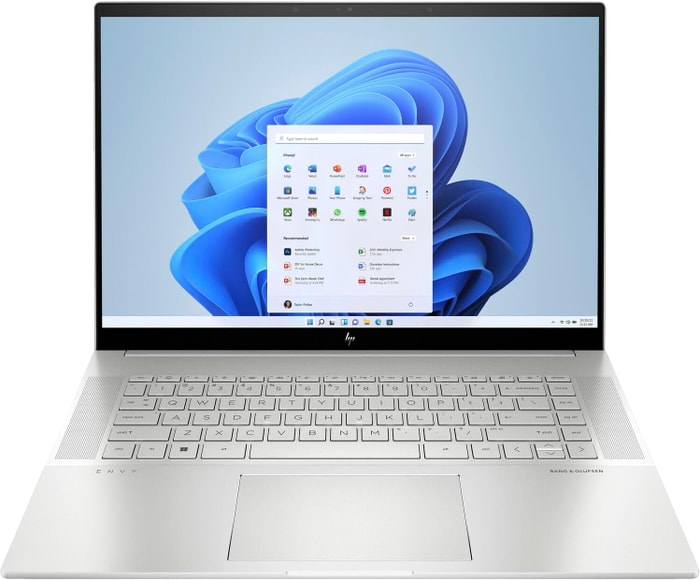 $1,800
$1,8003.HP Envy 16
HP Envy 16: A powerful and sleek laptop for live streaming, but with some drawbacks.- Plenty of CPU and GPU power
- New 120Hz screen refresh rate
- High-res webcam
- Sleek design
- Merely adequate base screen
- Optional OLED has fewer pixels than before
- Bulky and heavy
Summary
The HP Envy 16 is a heavyweight desktop replacement laptop with high-end features like a world-class webcam and a 120Hz refresh display, making it a tempting choice for live streaming. However, it has some drawbacks such as an average base screen, fewer pixels on the optional OLED display, and its bulky and heavy design.
Reviews
Alternatives

ASUS ROG Strix G15
- High-performance CPU and GPU
- Good workmanship
- Skimpy connectivity
- Potential coil whine in certain situations

4.Lenovo Legion Pro 7i 16
Lenovo Legion Pro 7i 16: High Performance, Sleek Design, and Affordable Price Make it a Top Choice for Gamers.- Strong overall performance
- Big, bright, and fast display
- Per-key RGB lighting
- Some flex to the keyboard deck
- Poor battery life
Summary
The Lenovo Legion Pro 7i 16 impresses with its powerful i9-13900HX processor and RTX 4090 graphics card, delivering outstanding performance at a reasonable price. Its sleek design hides its gamer-centric features, making it an appealing choice for those looking for a high-end gaming laptop.
Alternatives

HP Omen 17
- QHD display with 165 Hz
- Powerful performance for video processing and gaming
- Slightly below-average performance for a RTX 4080
- High noise level
Table of the Best Laptops for live streaming
| Laptop | Price (approx) |
| acer Nitro 5 | $680 |
| ASUS TUF Dash F15 | $1,160 |
| HP Envy 16 | $1,800 |
| Lenovo Legion Pro 7i 16 | $3,390 |

